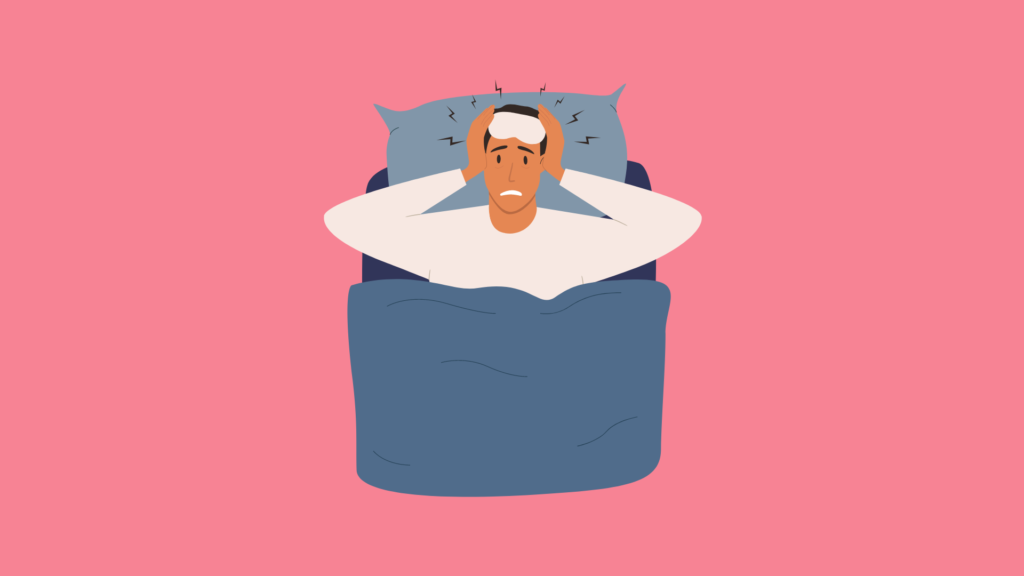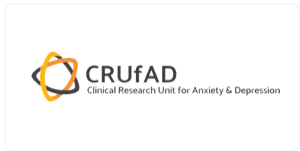Busting Common Myths about OCD

Written by Dr Samantha Tang and Katie Dobinson, clinical psychologists at THIS WAY UP
Obsessive-Compulsive Disorder, commonly known as OCD, is a mental health condition that is often misunderstood. People commonly use the term ‘OCD’ to describe a tendency to be very clean, perfectionistic or organised. Unfortunately, this does not fully capture the experience of OCD, and can contribute towards stigma encountered by people living with OCD.
It is commonly misjudged by many people – so this month, we’d like to shed some light on OCD.
So, what actually is OCD?
OCD is a mental health condition that is characterised by two types of symptoms: obsessions and compulsions.
Obsessions are thoughts, images or worries that keep coming into your mind, no matter how hard you try to block them out. For people with OCD, obsessions tend to be very distressing, and often involve thinking about something bad happening to themselves or other people. For example, worrying about getting very sick from germs or contamination, or having unwanted intrusive thoughts about their loved ones being harmed. Often, people with OCD fear that having a thought will increase the likelihood of the thought coming true (likelihood thought-action fusion), or that having the thought is morally as bad as acting on the thought (moral thought-action fusion).
Compulsions are behaviours that a person engages in in an attempt to get rid of, or ‘neutralise’ obsessive thoughts. Compulsions can be visible behaviours, such as repetitive hand-washing or repetitive checking (e.g., that the stove is turned off), or mental behaviours, such as repeatedly praying or counting. Compulsions are often repeated until the person feels that they’ve been done ‘just right’. Because of this, compulsions can take up a lot of time, and impact relationships, work, study and other areas of day-to-day life.
Myth busting about OCD
Now that you have a clearer understanding of OCD, read on to keep busting myths associated with this mental health condition.

Myth: Only people with OCD have strange, intrusive thoughts
Fact: This is incorrect! We all experience bizarre intrusive thoughts from time to time. Research conducted over the span of several decades has shown that 94% of the population experience unwanted intrusive thoughts, images, doubts and urges. For people without OCD, these thoughts are experienced as fleeting and random – they don’t hold any particular meaning and are therefore quickly forgotten.
For people with OCD, these unwanted intrusive thoughts become ‘stuck’ because they are seen as meaningful. For example, a person with OCD may have an intrusive thought about harming a loved one, and worry that experiencing the thought means they are bad or dangerous in some way.
Myth: Everyone is ‘a little bit OCD’, right?
Fact: Whilst it can be common to like things to be organised, to doubt whether you’ve locked the door, or double check that the stove is off, these symptoms alone do not indicate a diagnosis of OCD. OCD is a serious mental health condition. It involves intense, distressing symptoms that can significantly interfere with a person’s wellbeing, relationships, and day-to-day functioning.
Using the term OCD incorrectly is unhelpful and can be invalidating to the very real struggles of coping with unwanted obsessive thoughts and related compulsions.
Myth: People with OCD have to learn to live with it
Fact: People with OCD do not have to suffer alone. There are accessible, evidence-based treatments available. Cognitive Behaviour Therapy (CBT) is one of the most effective treatments for OCD. The primary component of CBT for OCD is exposure and response prevention, which involves exposure to obsessive thoughts and feared situations without using compulsions. This allows patients to learn that having an obsessive thought does not change the likelihood of the thought coming true, and that compulsions do not protect them or others from bad things happening.
Many people also find medication to help in reducing their OCD symptom severity as well as improving overall mood and functioning. With effective treatment, people can get back in control of their lives.
OCD and me
In our clinical practice, we find working with people who are experiencing OCD to be incredibly rewarding. We often find that just sharing information about the prevalence of intrusive thoughts provides a lot of relief to patients. To learn that these are not proof of inherent ‘badness’ tends to help reduce feelings of shame quickly, and start to get a person back on track with what matters to them in life.
It is also rewarding to see patients make lasting change as you support them in gradually facing their fears and doing things they have not been able to do for a long time. We also recognise that it takes a lot of bravery to seek support for OCD treatment – it is a privilege to work with people who are willing to discuss unwanted thoughts, learn to approach these in a different way, and to witness the positive change that follows.
Recognising Signs of OCD
If you or someone you know identified with symptoms of OCD and are looking for assessment and treatment, you may wish to speak with your local doctor/GP.
THIS WAY UP also offers an OCD program, accessible here, so you can get started today.
Not Sure which program is for you?
Take a Test to Help You Choose a Program
If you’re unsure which program to pick, take our anonymous online test to check how you feel and see which program may be suitable. This test will show you your levels of stress, anxiety, or depression and will make suggestions on what you can do next.





